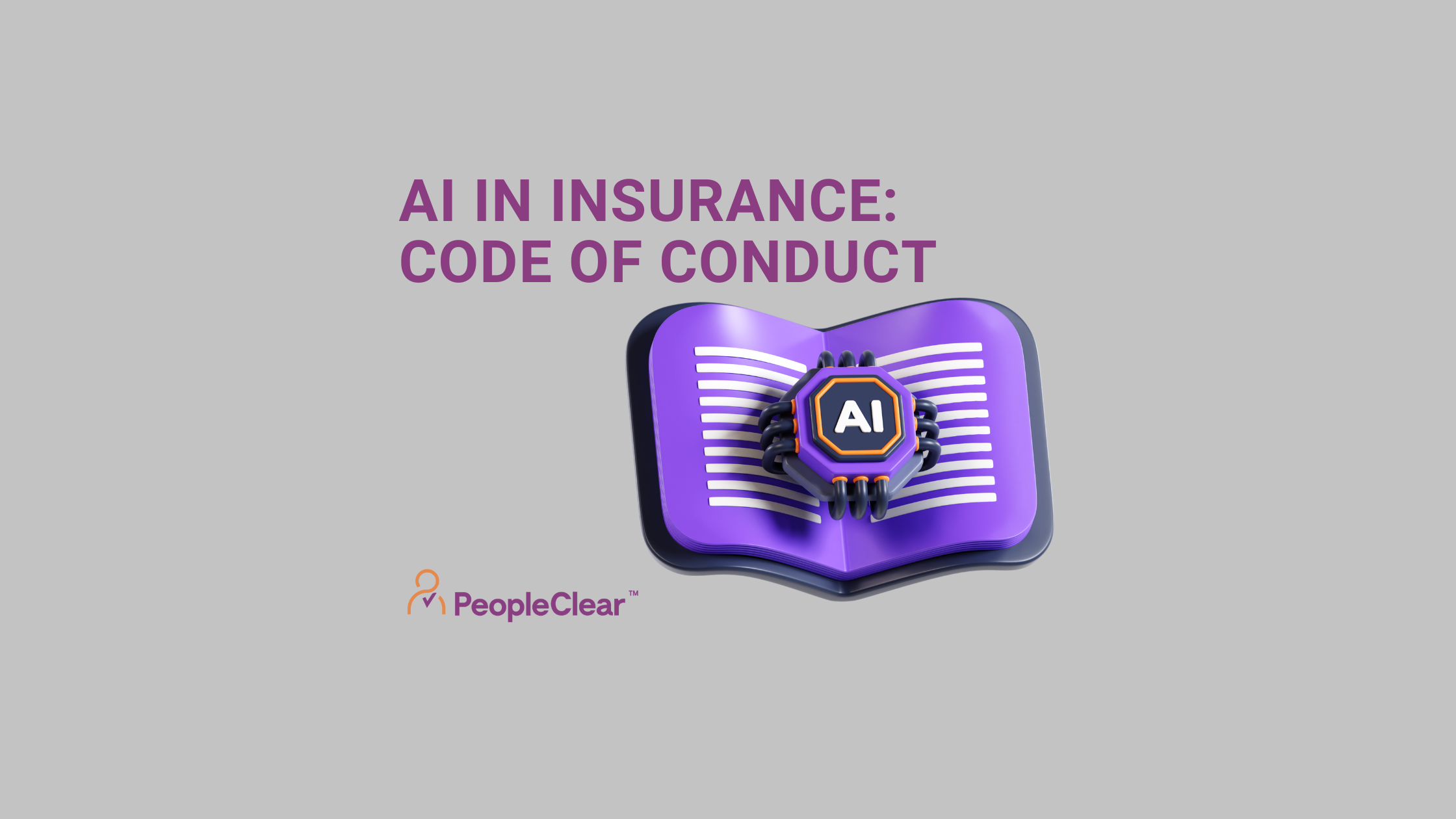AI in Insurance: Code of Conduct

AI technology is moving fast and transforming the way we work. Most industries are now finding ways that AI can speed up and/or enhance their work and productivity. But regulators are struggling to keep up, meaning there is little to no regulation on the use of AI in most industries. This can be especially problematic for heavily regulated industries, like insurance. So, how can we best utilise AI technology and keep up with competitors, while ensuring we still provide the best outcomes for our consumers?
In January 2024, in lieu of any formal regulations around AI, a group of 127 industry specialists launched a voluntary Code of Conduct around the use of AI in insurance. This aims to ensure an ethical approach when using AI in claims settlement processes.
Why do we need an AI Code of Conduct for insurance?
The application of AI has been found to be useful for insurance firms for things like claims processing, underwriting, fraud detection, and customer services. It can speed up processes allowing firms to run more efficiently and focus their staff on other activities. But without regulation it’s important firms understand not only the benefits of using AI but also the drawbacks.
We could naively assume that taking away the human element and relying on AI would remove the issue of unconscious bias. But AI models need to be trained, if the original data set is not up to scratch it can mean that unconscious bias is still a factor even when using AI. Checks and balances must be put in place to ensure that discrimination against groups of people does not take place. This is an ongoing process as data can become more biased over time.
What is the Code of Conduct?
The Code of Conduct has been created to ensure that when AI is used by insurance firms, it is used in a way that is ethical and responsible. While firms are under no legal obligation to adhere to this Code of Conduct, it seems to be only a matter of time before regulations will be brought in around the use of AI. In an industry that is often accused of being reactive, this proactive approach to the use of AI is a welcome change.
The code has been built around three principles of fairness, accountability, and transparency. The use of AI within the sector should be fair and easy to explain. The code is available to be signed by firms or individuals to demonstrate a commitment to transparency and ensuring the proper use of AI in insurance claims. Signing the Code of Conduct also demonstrates to consumers that firms will use AI responsibly. The code itself covers safety, security, fairness, accountability and governance, as well as ensuring it is used in a transparent and explainable way.
Why sign up to a code of conduct?
While signing up to the Code of Conduct is voluntary, the Financial Conduct Authority (FCA) have already suggested that regulations around AI may be included in the Senior Managers and Certification Regime (SMCR) in the future. With this in mind, the Code of Conduct is principle-based and would work alongside any future regulations that may come in. Using this Code of Conduct as a guideline for good practise for the use of AI will mean that firms will be starting off on the right foot with AI from the ground level, rather than having to adapt their processes further down the line to meet new regulations when they eventually come in.
It also takes in to account the speed with which AI technology develops. This makes it incredibly hard for regulators to keep up with an ever-changing target. By basing this code on good practise principles, it should be easy to adapt to the evolving technology, even when official regulations are slow to do so.
Many firms and individuals are only just beginning to feel their way with AI, so it’s really useful to have the Code of Conduct available to set good practises for its use from the start. Consumers can also be understandably nervous of the use of AI, so this code demonstrates your firm’s commitment to adhere to the principles of fairness, accountability, and transparency. These principles echo much of what current regulations around the finance and insurance industry already expect.
If you would like guidance around the role technology can play in meeting regulations get in touch to find out how we can help.